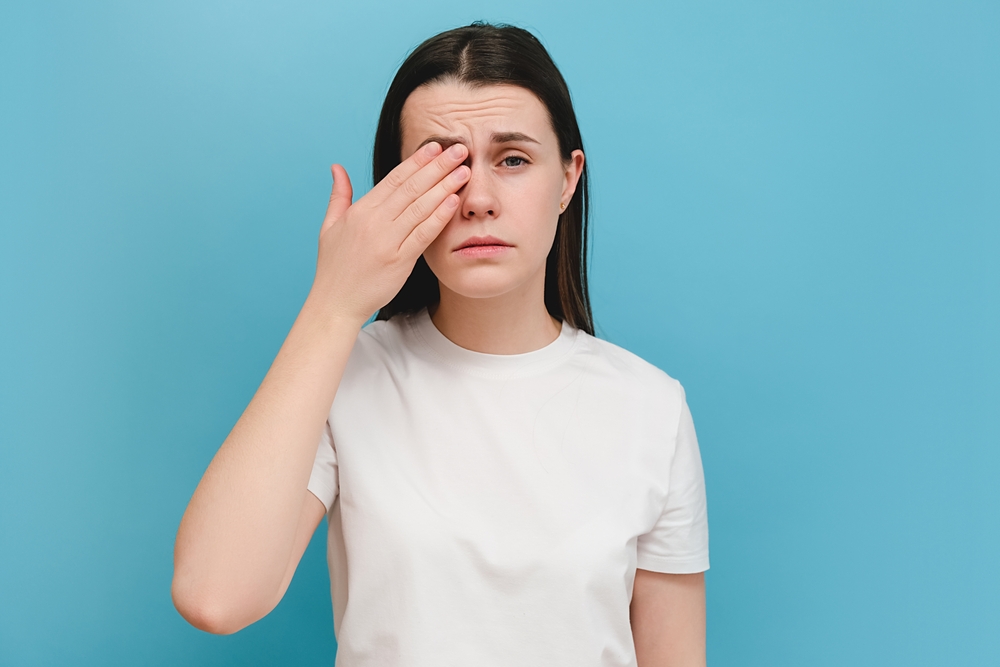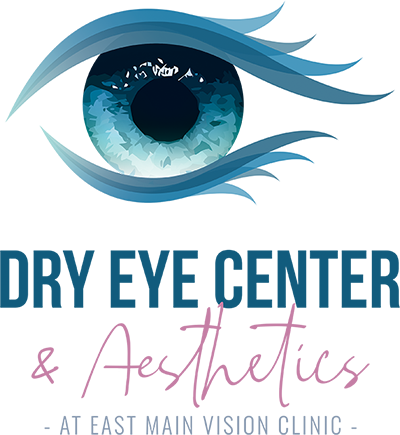June 17, 2025

Most people think of dry eye as a minor irritation — a little burning, a little stinging, maybe some blurry vision when you're tired. But if you’re living with chronic dry eye, you know the truth: it’s not “just an eye thing”. It affects how you work, how you show up in relationships, how you feel in your body. Over time, it can start to shape how you see yourself and the world around you. And for many people, it leads somewhere quieter, heavier — into anxiety and depression.
When the Mind Triggers the Body
Anxiety doesn't stay in your head. It runs through your nervous system. When you’re anxious — even if you don’t “feel” panicked — your body is in a heightened state: muscles tense, breathing short, and yes, tear production drops. Your blink rate slows. Your inflammation rises. Medications prescribed for anxiety (SSRIs, SNRIs, benzodiazepines) often come with dry eye as a side effect.
So, if you’ve noticed your eyes feeling worse during stressful periods — or after starting a new medication — you’re not imagining it. There’s real science behind it.
And Then the Body Triggers the Mind
Chronic dry eye has a way of taking over quietly. It’s not just uncomfortable — it’s unpredictable. One day you’re fine, the next you’re blinking furiously at your screen, unable to focus. That unpredictability creates a low-level sense of fear — “What if this happens while I’m driving? On vacation? In a meeting?” Over time, that turns into hypervigilance — constantly monitoring your symptoms, avoiding activities, withdrawing from the things that make life feel normal. And that’s where depression starts to creep in.
Dry Eye and Depression: The Silent Link
Several studies have found that people with moderate to severe dry eye are significantly more likely to report symptoms of depression. Why?
Chronic discomfort wears down emotional resilience.
Poor sleep — common in dry eye patients — increases mood instability.
The feeling of “I’ve tried everything and nothing helps” leads to hopelessness.
You may begin to feel isolated. It’s hard to explain to others. Even harder when they don’t take it seriously.
You don’t need a mental health diagnosis to feel the weight of this. You just need to be human — in a body that doesn’t feel good, in a world that keeps going.
Breaking the Loop
If this sounds familiar, you’re not alone — and there is a way forward. But it’s not just about treating your eyes or managing your mood. It’s about doing both, at the same time.
For the Eyes:
Look into advanced therapies: IPL, Radiofrequency, punctal plugs, prescription medications.
Screen hygiene matters: 20-20-20 rule, artificial tears, proper lighting.
Manage contributing conditions: blepharitis, MGD, and autoimmune issues.
For the Mind:
Therapy can help (CBT in particular is well-studied for chronic pain and anxiety).
Talk to your doctor if you suspect medication may be affecting your eyes.
Community matters — support groups, online or in-person, reduce isolation.
For Your Nervous System:
Prioritize real rest: not scrolling, not “numbing out,” but actual regulation — walking, breathing, stillness.
Move your body. It doesn’t have to be intense — just enough to shift your physiology.
You’re Not Weak. You’re Worn Out
And that’s understandable. Living with chronic discomfort — especially something as invisible as dry eye — is exhausting. But there’s real hope in naming the whole picture: that it’s not just about your tear film, and it’s not just “in your head.” It’s a loop between body and mind, one that can be softened, interrupted, and healed with the right approach. You don’t have to keep pushing through. You deserve comfort — and clarity — in your eyes and in your life.
If dry eye is taking more from you than it should, we're here to help. Our clinic offers both advanced treatment options and a team that listens. Schedule a consultation when you're ready.
Dr. Shane Hager



